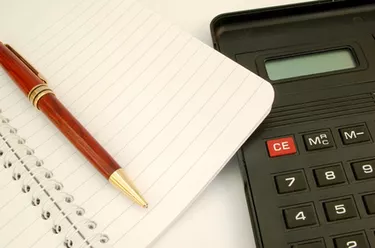
A budget is a tool individuals and businesses use to plan how to best manage their money. An effective spending and savings plan will help you meet your goals, including paying off debt or putting some money aside, as well as secure your financial well-being and future. So when you're ready to plan a budget for you, your family or business, be sure to keep these essential steps in mind.
Assessment
Video of the Day
The first step in planning a budget is to assess how much you currently earn and the ways you spend money. Take all your sources of income into account and list all your monthly expenses to determine how much money you make and spend each month. From this assessment, you can discover areas where you need to devote more money as well as areas where you can save money.
Video of the Day
Evaluation
Once you start tracking how much money you spend each month, you'll begin to see areas in your spending where you can cut back and allocate your funds better. This act of prioritizing how you want to spend your money will naturally channel your money into areas that are most important or desirable to you. Once you have a clear picture on how much your total income exceeds your total expenses, you can make appropriate changes in your personal budget to accommodate your needs. If your expenses exceed your income, however, more drastic changes may be necessary, and you may need to obtain another source of income.
Preparation
After you've assessed your financial situation thoroughly, it's time to prepare a realistic budget that addresses your personal financial goals. You can draft a budget geared towards paying off debt strategically, building up an emergency fund or adding wealth to a retirement or insurance policy. Be sure to craft a budget that will allow you to live comfortably within your means, as an unrealistic budget is as useless as having no budget at all.